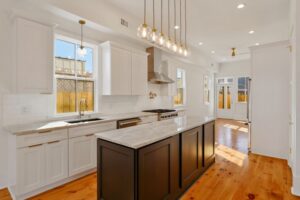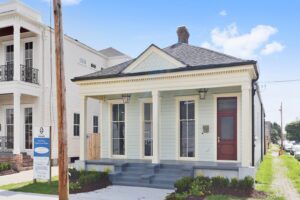New Orleans is filled with historic homes that carry charm, character, and the kind of architecture you won’t find anywhere else. For many buyers, purchasing a property that needs renovation feels like a smart way to get more house for the money while also putting your own stamp on it. But renovating in New Orleans comes with its own set of considerations, some exciting, others more challenging. Before you make an offer, here are the key things to keep in mind when buying a home that needs renovation in New Orleans.
Financing Can Work Differently
Not every property that needs renovation will qualify for a standard mortgage. Traditional lenders often require a home to meet certain livability standards, and if the property needs extensive updates, it may not make the cut. On top of that, conventional loans usually don’t provide funds for repairs or improvements.
This is where renovation loans come in. Programs like FHA 203(k), HomeStyle Renovation, and VA Renovation loans are designed to cover both the purchase price and the cost of updates, all in one package. For some buyers, pairing a traditional mortgage with a personal loan for improvements is another option. The important thing is to understand your financing choices up front so you don’t lose momentum once you’ve found the right property.
Look Beyond the Surface
It’s easy to get swept up in the charm of hardwood floors, tall ceilings, or a historic façade, but it’s the hidden issues that can make or break a renovation. Cosmetic projects like painting or refinishing floors are fairly manageable. Structural repairs, outdated wiring, old plumbing, or foundation work are a different story. These updates can add significant costs without adding much resale value.
Before you buy, schedule a thorough home inspection and don’t be afraid to ask hard questions about the condition of the property. In New Orleans especially, where many homes are more than a century old, you want to know exactly what you’re walking into. Doing this homework up front can save you from costly surprises later.
Prioritize the Right Projects
Once you’ve purchased a home that needs renovation, deciding where to start can feel overwhelming. A smart renovation plan begins with the essentials: stabilizing the structure and updating the core systems like electrical, plumbing, and HVAC. These aren’t the most glamorous upgrades, but they provide the foundation for everything else.
After that, focus on the spaces that impact your daily life the most. Kitchens and bathrooms typically deliver the biggest improvements in comfort and functionality, and they also add long-term value to your home. From there, you can move on to cosmetic details like finishes, paint, and design touches that make the space feel like yours.
In New Orleans, there’s an added layer to consider: balancing modern updates with historic character. Many homes fall within historic districts, which means renovations may need to meet certain guidelines. Even outside of those districts, being thoughtful about preserving original details such as wood windows, brick, or ironwork can give you a home that feels modern yet true to its history.
Why Professional Help Matters Here
Renovating a home in New Orleans isn’t always straightforward. Many projects require permits, inspections, and sometimes approval from the Historic District Landmarks Commission. The process can feel overwhelming if you’re trying to manage it on your own, and work that doesn’t meet code can lead to delays and extra costs.
Working with professionals who understand the local requirements can make all the difference. Architects, contractors, and designers who are experienced with New Orleans renovations can help you avoid common pitfalls, ensure the work is done correctly, and keep your project on track. It may feel like an added investment, but it often saves time, stress, and money in the long run.
Plan for Your Future
Before you dive in, it’s worth asking yourself what your long-term goals are for the property. Are you planning to create your forever home, designed exactly to your taste? Or are you hoping to increase the home’s value and eventually sell? Some buyers even see renovation as a way to create investment opportunities, whether through long-term rentals or short-term vacation properties.
Whatever your plan, thinking ahead helps you make smarter renovation choices. If you’re staying long-term, you can focus on comfort and personalization. If you’re planning to sell or rent, prioritizing updates that add value and durability will pay off. The more intentional you are from the start, the more successful your renovation will be.
Considering buying a home that needs renovation in New Orleans? Contact us when you’re ready to start planning your project.



